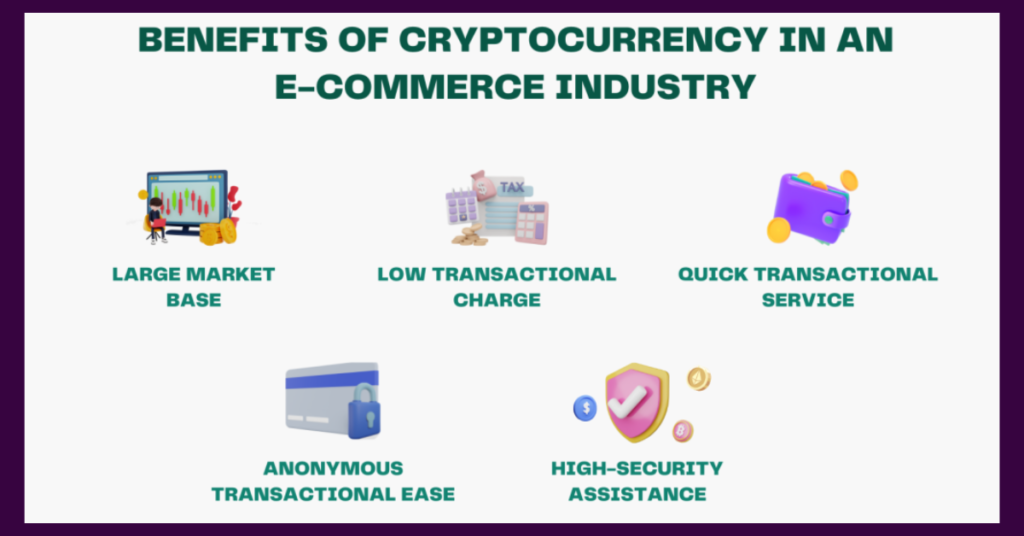
Cryptocurrency has been touted as a revolution in the 21st century. While it is still far from global adoption, the wave around it continues to grow. Skeptics are gradually turning into supporters. And it is a no-brainer. Once you start diving deep into the benefits of cryptocurrency, a new world of possibilities opens up. The e-commerce landscape is not shielded from these possibilities. This innovative payment method is changing how transactions are conducted, offering unique advantages and challenges for both businesses and consumers. Keep reading and learn about the positive impact of cryptocurrencies such as Bitcoin and Ethereum on online commerce.
Payment Flexibility
There is no dearth of options when it comes to making payments for ecommerce transactions. Cryptocurrency takes this flexibility to another level. Unlike traditional credit/debit card or bank transfer mechanisms, cryptocurrencies allow customers to make direct peer-to-peer transactions. These digital payments facilitate smoother cross-border transactions, removing currency conversion fees and delays often associated with international payments. As a result, e-commerce businesses can leverage cryptocurrency to overcome the hindrances of regional banking arrangements and keep customers happy.
Transaction Costs
Traditional payment methods such as credit cards involve intermediaries that charge significant fees for their services. Cryptocurrency transactions, on the other hand, are typically processed on blockchain networks. With no middlemen on these networks, transaction fees are automatically reduced. Small- and medium-sized e-commerce businesses tend to benefit the most from lowered transaction fees, as they aim to minimize operational expenses. It’s a win-win situation for customers (discounted rates) and retailers (higher profit margins).
Enhanced Security and Privacy
The decentralized nature of blockchain technology provides a secure medium to conduct financial transactions. Each transaction is encrypted and recorded on a public ledger, making it difficult to alter or falsify. If you value privacy and data protection, businesses that accept cryptocurrency have you covered. In fact, they can be considered as forward-thinking and trustworthy.
Are there any Drawbacks to Cryptocurrency in E-Commerce?
Cryptocurrency adoption in e-commerce entails some challenges. The volatility of cryptocurrency values is a major concern. It becomes riskier if transactions are conducted via meme coins. This volatility can complicate pricing strategies and create uncertainty around the actual value received or paid in transactions. Regulatory uncertainties are another talking point. Countries are still whiteboarding legal frameworks for cryptocurrencies. On top of that, each country has its own standard and definition of what is legal in crypto transactions. Finally, the acceptance of cryptocurrency in e-commerce is still relatively new, and widespread adoption hinges on building consumer trust. Some customers may be unfamiliar with how cryptocurrencies work or have concerns regarding their legitimacy.
Conclusion
Any new technology is subject to barriers and criticism in the beginning. Blockchain and cryptocurrencies are no different. However, after reading through this article, you cannot deny crypto’s role in reshaping e-commerce. Once online businesses start addressing how crypto transactions are processed, the security measures in place, and reassurances about refund policies in case of transaction disputes, adoption will skyrocket like never before.
